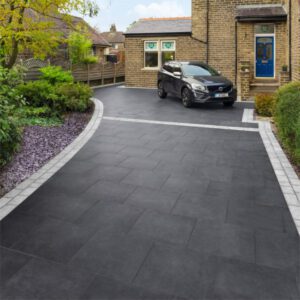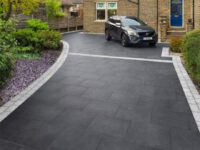Driveway Paving Materials
There are a number of different materials used for driveway paving. Each type has pros and cons, so it is important to choose the right one for your needs. Consider factors like cost, maintenance, environmental impact, durability, and resistance to heat, rain, and cold. Some materials are inexpensive to install, while others require regular maintenance and cost more.
The cost of driveway paving varies depending on the size, design, and materials used. A curved driveway, for example, will cost more than a rectangular one since the latter needs to be cut to fit. In addition, curved driveways are also more susceptible to cracks and chipping, which decreases their durability. If you’re planning to re-pave your driveway, it’s essential to have an idea of the different options available before you begin the process. Driveway Paving Charleston SC offers free estimates to help you with this decision.
Before deciding on paving material, consider how much traffic you expect your driveway to receive. You can choose gravel if you’re only concerned with family and guests, or you can opt for asphalt or concrete if you expect heavy traffic. The cost of driveway paving will depend on these factors, but you can also look for prices and materials that fit your budget.
Depending on your area, the type of material and size of your driveway will also affect the cost. Concrete driveways tend to cost more than asphalt, but they are durable and last up to 30 years with proper maintenance. Paving a driveway made of concrete costs approximately $6 per square foot, and a standard two-car driveway can cost between $1,200 and $2,400. In contrast, gravel driveways are the cheapest option, but they require regular maintenance. You can also opt for pavers or brick, which cost more than asphalt.
The labor costs for driveway paving are approximately 50 percent of the total. This includes the cost of large pieces of equipment and professional labor. The equipment needed for driveway paving includes rollers, plate compactors, concrete mixers, asphalt pavers, and wheelbarrows. However, it’s important to keep in mind that you may need to remove landscaping and use heavy equipment to level the land.
Another option for driveway paving is rubber, which is a more environmentally friendly option than asphalt or stone. This material is made of recycled rubber and is available in different colors and patterns. This material is poured on the existing asphalt or concrete. It creates a nonporous surface that’s slightly softer than the original surface. However, you’ll need to provide adequate drainage to ensure its durability.
When you plan to pave your driveway, there are several different materials to consider. You should learn about each type of material and its different properties so that you can make an educated decision. The materials that you choose for your driveway should be both aesthetically pleasing and low maintenance. Let’s look at some of the top choices. Let’s start with brick. Brick provides a smooth, even surface and is an eco-friendly choice.
Another popular choice for driveways is crushed stone. This paving material is extremely low maintenance and can last two or three decades. This type of driveway is also a good choice if you are environmentally conscious. Crushed stone is made from seafood waste and degrades naturally as you walk on it. Its natural composition makes it a popular choice for coastal homes.
Pavers made of concrete are another excellent choice. While concrete is more expensive up front, it requires very little maintenance. This material is also durable and has a high visual appeal. Concrete driveways are often laid with decorative patterns and colors that reflect a homeowner’s personal style. Unlike asphalt, concrete is not prone to rust or chipping and will last for many years.
Pavers come in a variety of colors and materials. Pavers can be made of cement, asphalt, stone setts, gravel, and brick. Depending on the type of driveway you have, these materials will vary in cost. Pavers and stone setts are typically the most expensive types of driveway materials.
Pavers made from concrete and asphalt are a great option for homeowners who live in colder climates. But asphalt and concrete can be prone to cracking, and the road salt used on them can eat away at them, so it’s important to carefully consider the type of driveway you choose.
Pavers made of bluestone are durable and transition to light gray with exposure to sunlight. They give driveways a beautiful look, and they can be combined with other paving materials for a more coordinated look. Bluestone is also a low-maintenance choice for driveways.






